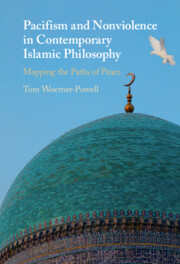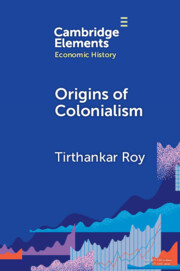983 results
29 - Revolution
- from Part II - Modalities
-
-
- Book:
- The Cambridge Handbook of Constitutional Theory
- Published online:
- 27 March 2025
- Print publication:
- 24 April 2025, pp 491-520
-
- Chapter
- Export citation
“Whiteness,” Prejudice, and the Consolidation of an Anglo-American Elite in Nineteenth-Century Hong Kong
-
- Journal:
- Itinerario , First View
- Published online by Cambridge University Press:
- 28 March 2025, pp. 1-18
-
- Article
-
- You have access
- Open access
- HTML
- Export citation
Reflections on Decolonial Imperatives in Global Health Law
-
- Journal:
- Journal of Law, Medicine & Ethics ,
- Published online by Cambridge University Press:
- 27 March 2025, p. 1
-
- Article
- Export citation
21 - The Papacy and Slavery in Early Modern Europe, 1500–1800
- from Part IV - Theopolitics and Religious Diplomacy
-
-
- Book:
- The Cambridge History of the Papacy
- Published online:
- 28 February 2025
- Print publication:
- 20 March 2025, pp 544-569
-
- Chapter
- Export citation
Global Studies in Asian Laws
-
- Journal:
- International Journal of Legal Information , First View
- Published online by Cambridge University Press:
- 18 March 2025, pp. 1-38
-
- Article
-
- You have access
- HTML
- Export citation
Household Registration and Suffrage in Post World War II Japan: The case of the Unregistered (Mukosekisha)
-
- Journal:
- Asia-Pacific Journal / Volume 16 / Issue 15 / August 2018
- Published online by Cambridge University Press:
- 14 March 2025, e1
-
- Article
- Export citation
Coming to Terms with a Colonial Panic Attack: Or, How to Remember the 1923 Kantō Korean Massacres as Chōsenjin Sawagi
-
- Journal:
- Asia-Pacific Journal / Volume 21 / Issue 8 / September 2023
- Published online by Cambridge University Press:
- 14 March 2025, e6
-
- Article
- Export citation
Introduction: Race and Empire in Meiji Japan
-
- Journal:
- Asia-Pacific Journal / Volume 18 / Issue 20 / October 2020
- Published online by Cambridge University Press:
- 14 March 2025, e2
-
- Article
- Export citation
How Chinese Migrant Workers Resisted Coconut Colonialism in Samoa
-
- Journal:
- Asia-Pacific Journal / Volume 20 / Issue 17 / October 2022
- Published online by Cambridge University Press:
- 14 March 2025, e9
-
- Article
- Export citation
Between a Forgotten Colony and an Abandoned Prefecture: Okinawa's Experience of Becoming Japanese in the Meiji and Taishō Eras
-
- Journal:
- Asia-Pacific Journal / Volume 18 / Issue 20 / October 2020
- Published online by Cambridge University Press:
- 14 March 2025, e4
-
- Article
- Export citation
The Sado Gold Mine and Japan's ‘History War’ Versus the Memory of Korean Forced Laborers
-
- Journal:
- Asia-Pacific Journal / Volume 20 / Issue 5 / March 2022
- Published online by Cambridge University Press:
- 14 March 2025, e1
-
- Article
- Export citation
Early Meiji Japan and Public History: Ports, Public Memory, Gateways to Understanding through Photography
-
- Journal:
- Asia-Pacific Journal / Volume 20 / Issue 14 / July 2022
- Published online by Cambridge University Press:
- 14 March 2025, e1
-
- Article
- Export citation
Forced Labour in Imperial Japan's First Colony: Hokkaidō
-
- Journal:
- Asia-Pacific Journal / Volume 18 / Issue 20 / October 2020
- Published online by Cambridge University Press:
- 14 March 2025, e7
-
- Article
- Export citation
Imperial Gateway: Colonial Taiwan and Japan's Expansion in South China and Southeast Asia, 1895–1945
-
- Journal:
- Asia-Pacific Journal / Volume 20 / Issue 17 / October 2022
- Published online by Cambridge University Press:
- 14 March 2025, e6
-
- Article
- Export citation
Vicarious Politics: Violence and the Colonial Period in Contemporary South Korean Film
-
- Journal:
- Asia-Pacific Journal / Volume 15 / Issue 12 / June 2017
- Published online by Cambridge University Press:
- 14 March 2025, e3
-
- Article
- Export citation
If You Liberated Us, Why Are You Still Here? Dilemmas of Global U.S. Military Basing
-
- Journal:
- Asia-Pacific Journal / Volume 22 / Issue 5 / May 2024
- Published online by Cambridge University Press:
- 14 March 2025, e1
-
- Article
-
- You have access
- Export citation

Pacifism and Non-Violence in Contemporary Islamic Philosophy
- Mapping the Paths of Peace
-
- Published online:
- 13 March 2025
- Print publication:
- 20 March 2025
-
- Book
-
- You have access
- Open access
- Export citation

Origins of Colonialism
- Why Geography Mattered
-
- Published online:
- 13 March 2025
- Print publication:
- 10 April 2025
-
- Element
- Export citation
6 - European Social History and the Global Turn
-
-
- Book:
- Globalizing Europe
- Published online:
- 06 March 2025
- Print publication:
- 13 March 2025, pp 76-85
-
- Chapter
- Export citation
Nation-Building in the Post-Colonial Qatari State: The Politics and History of Nationalism
-
- Journal:
- Review of Middle East Studies , First View
- Published online by Cambridge University Press:
- 13 March 2025, pp. 1-33
-
- Article
-
- You have access
- Open access
- HTML
- Export citation


